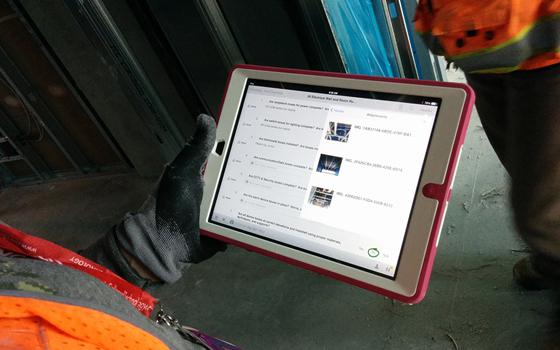The use of high-tech solutions has been advocated by professionals in the construction sector for at least the last 30 years – if not longer – in global markets, but the past decade has seen a considerable uptick in the deployment of technology in the GCC.
The economic crash of 2008/09 compelled decision-makers across the Gulf to seek out cash-saving construction processes, and tech tools have consistently risen to the challenge in the years since.
Dubai’s victorious bid to host the World Expo 2020 has also raised development expectations so that construction technology – once viewed as an avoidable expense – has now become a crucial component of large-scale project designs.
Nic Jacobs, regional director for digital and technology at Faithful+Gould, says that while regional outfits faced some obstacles on the road to tech adoption, the industry’s future prospects are bright. “We notice that clients have learned the hard way over the past five years,” he tells Construction Week.
“Substantial investments were made in project management information systems without giving consideration to the real business requirements of their operations. [Now,] we notice the shift from IT-led business system selection, to a business-led system selection.
“We always urge clients to deploy technology to serve the business needs, and not for the business to operate as dictated by the technology. Selecting a technology solution is a phased approach, with the selection of the actual software [being] the very last step in the process.”
Jacobs says that Faithful+Gould, having “invested heavily in technology and automation”, to improve efficiency and quality, “can see the return on that investment”, adding that clients are seeking the same result. To Jacobs, the regional construction industry has “reached the start of a massive revolution”.
He continues: “We are working on all fronts to leverage developments in the wider digital and technology space. With our global reach and internal collaborative working infrastructure, we are able to share ideas and have teams from different parts of the world working on projects and initiatives. This allows us to bring new and fresh ideas to the Middle East.
“We are working with tech start-ups as well as established powerhouses to change the landscape of our service delivery. Concepts such as artificial intelligence, machine learning, and robotics are not foreign any more, and are driving our innovations.”
Start-ups – as well as small- and medium-enterprises (SMEs) – are driving technological advancements both globally and in the GCC, and their impact is visible on the construction sector, specifically within the 3D-printing segment. This March, construction start-up Cazza revealed its plans to develop the world’s first 3D-printed skyscraper, using a technique called crane printing.
More recently, the firm launched a line of automated construction machines capable of 3D printing entire structures, including houses, villas, and office buildings.
Another such start-up is Dubai-based Immensa Technology Labs, which launched the UAE’s first 3D-printing factory in July.
According to chief executive officer, Fahmi Al-Shawwa, Immensa, which specialises in additive manufacturing activities, is well-placed to succeed in Dubai, which is a major proponent of 3D printing.
Construction Week























































